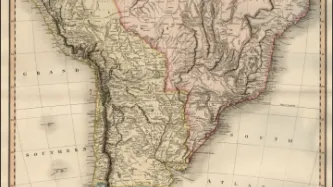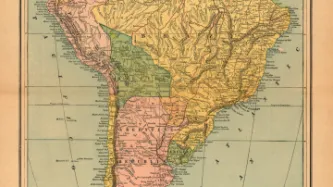Search
Content type: Examples
In mid-May, the Chilean health minister, Jame Mañalich, postponed the planned launch that would have made the country the first in the world to issue “immunity passports” on the basis that it could trigger discrimination in the job market. The decision was approved by experts from the Chilean Medical Association.
https://chiletoday.cl/site/chile-postpones-immunity-passports-to-avoid-job-discrimination/
Writer: Boris van der Spek
Publication: Chile Today
Content type: Examples
Even though the scientific jury is still out on whether and how long post-COVID-19 immunity will last, proof of having recovered from the illness is an asset in renting out an apartment on Airbnb, US companies are beginning to develop an immunity passport for hotels, and the Chilean government is issuing “release certificates” to people who complete quarantine after testing positive. In Winston-Salem, North Carolina, doctors are reporting that they’re seeing people test positive after attending…
Content type: Examples
On June 15 by presidential decree Chile extended its state of catastrophe, in place since mid-March, by 90 days and the pace of new infections continued to increase and the authorities declared a full lockdown in Santiago, where quarantine is routinely enforced by soldiers. The government intends to seek jail time for the worst quarantine violations.
https://www.reuters.com/article/us-health-coronavirus-chile-idUSKBN23M2NH
Writer: Reuters
Publication: Reuters
Content type: Examples
The Santiago Court of Appeals has ruled that the Ministry of Foreign Affairs cannot require migrants to sign a declaration saying they agree to not return to Chile for nine years. The government is now going forward with an appeal stating that this ruling contraditcs a 2018 resolution, says the subsecretary Juan Francisco Galli.
Source: La Tercera
Writer: Juan Manuel Ojeda and Leslie Ayala
Content type: Examples
Our partners from Fundación Datos Protegidos in Chile also reacted to the Chilean Government App to handle the COVID-19 situation, and listed a series of critical regulatory points, demanding a multistakeholder instance to discuss them.
Link: https://datosprotegidos.org/declaracion-de-fundacion-datos-protegidos-sobre-app-anunciada-por-gobierno-de-chile-como-respuesta-a-covid19/ | Declaración de Fundación Datos Protegidos sobre app anunciada por Gobierno de Chile como respuesta a COVID19
Content type: Examples
Our partners from Derechos Digitales analysed the Chilean Government App to respond to the Corona Virus, saying that it will likely be useless and infringing on existing privacy rights (in Spanish)
Link: https://www.derechosdigitales.org/14387/coronapp-la-inutilidad-del-atajo-tecnologico-desplegado-por-el-gobierno-y-sus-riesgos/
Content type: Examples
The National Board of Scholarships and School Aid (Junaeb) in Chile was also heavily criticised for its use of facial recognition programmes to deliver meals at thirty schools in three cities across the country. After the Supreme Court requested in 2017 that the system must not be applied without the consent of the parents, in February 2019 it was the Council for Transparency that declared that: “The use of biometric identification systems to certify the delivery of food rations at schools…
Content type: Case Study
The exclusion caused by ID can have a devastating effect on people, limiting their opportunities and ability to survive.
Names have been changed.
Carolina is in a more privileged position than many other migrants, she admits that. She has a formal job, for one. She is – and has always been – in Chile legally: her previous visa has expired, and her new one is being processed. Under the law, she is permitted to stay and work in the country while this is happening. But she is finding the…
Content type: Case Study
Photo credit: Douglas Fernandes
The exclusion caused by ID can have a devastating effect on people, limiting their opportunities and ability to survive. In September 2018, Privacy International interviewed people in Santiago, Chile who had faced problems from the Chilean ID system, known as the RUT. Names have been changed.
It was never going to be easy for Liliana, entering Chile without a visa. But, in Chile, the ID system – known as the RUT – is ubiquitous; without one, as she would…

